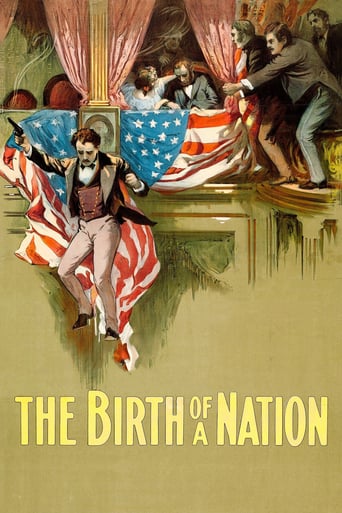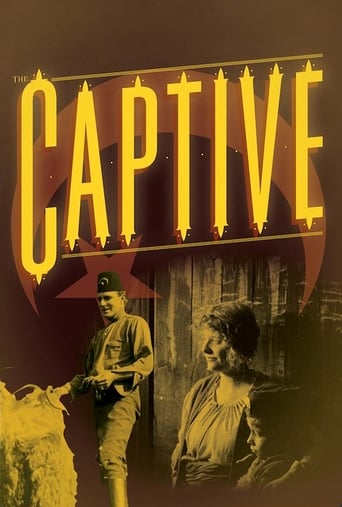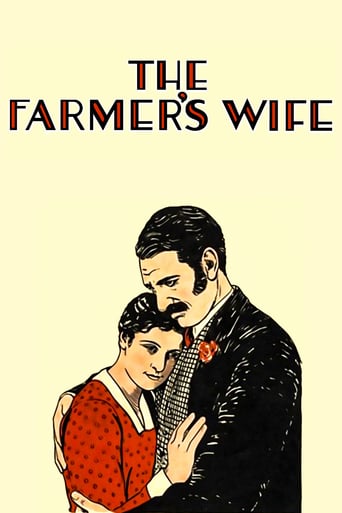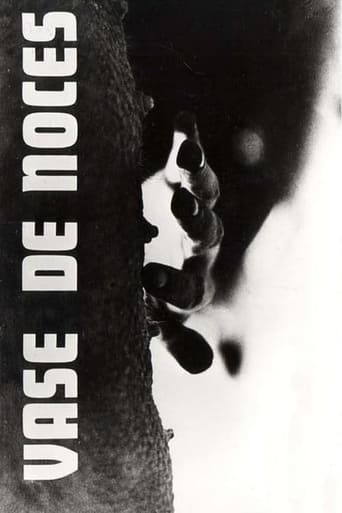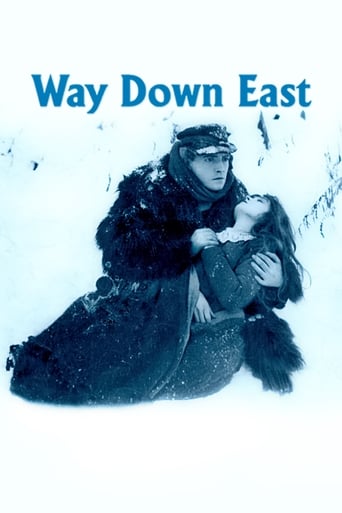

Way Down East (1920)
A naive country girl is tricked into a sham marriage by a wealthy womanizer, then must rebuild her life despite the taint of having borne a child out of wedlock.
Watch Trailer
Cast


Similar titles
Reviews
D.W. Griffith's lengthy silent melodrama about a naive young woman from the country who is taken advantage of by a cad. Later she finds love with a nice, sweet boy but her past comes back to haunt her. Never one to shy away from expressing his personal beliefs in his films, Griffith uses this simple story to sermonize about the moral character of men (basically they're all either doe-eyed innocents or total bastards) while also finding time to criticize the idle rich and prop up women as madonna figures. The opening title cards inform us men were never meant to be monogamous but we should try to be because Jesus said so...or something like that. Show that to your grandma's church group.Star Lillian Gish is terrific at expressing emotions with her face and body. Few actresses, silent era or since, have been able to convey so much without words. Then we have her performance in the climax. Watching Gish fling herself about in the ice and snow, knowing it caused permanent physical damage to her hand...well it's a disturbingly impressive dedication to one's craft. She really is one of the all-time greats. Babyfaced Richard Barthelmess and the rest of the cast are also good.On the negative side it is slow-going, particularly in the first half, with a lot of drawing room stuff and side visits through the local corn. As the film goes along, it becomes darker and more interesting, culminating in the justifiably famous snow storm finale with special effects provided by Mother Nature. Definitely worth a look for anyone who wants to see the best of the silent era, but I would advise against starting here. This is the type of film you need to be used to the silent movie pros & cons before attempting to watch it. That first hour or so is likely to drive away impatient viewers.
DW Griffith's ideal was that dreams can come true or should be shown to, and that cinema should work to that effect. He carried all the other Victorian values with him, the edifying fable, usually a big sappy story, grandiose love, austere morals, the struggle against forces of darkness. These are old and mouldy relics now, and must have even seemed so at the time to young more radical cineastes abroad.But he was our first master of technique and many learned from him, Abel Gance in France, Sjostrom in Sweden, of course Chaplin, Kuleshov and his film workshop. Here he perfects the business with layers he was still struggling with in Intolerance.Intolerance always cut back and forth to very concrete moments in time, every intertitle announcing so in advance, as a result we got forced, simple metaphysics. Simple physics in fact, exhaustively so. You did not have to do any work, merely be swept as part of one or the other mob. It was clean linear history, movement in one direction.I want to direct your attention to two instances here. One is where we have just followed another segment of the misadventures of the naive country girl betrayed by the rich playboy, the film suddenly cuts away to the handsome country boy - her true love interest we presume - being jostled awake in bed as though from a bad dream and himself the dreamer of our story. This has saturated so ubiquitously in film culture, it is now considered in bad taste to signify a dream scene in this way.The other is the awesomely mounted ice-breaker finale, impressive for just the selection of cascading imagery but now parting to reveal soul, the whole fabric of the world being torn beneath the feet of our heroine to reveal a liquid universe below, stories written in waters and swept away and forgotten. In all the years of film since then we have only managed to invent a third layer on top of Griffith's two, adding in the equation the veracity of the author supplying the fabric and imagery, and have mostly spent that time transferring the whole more directly to the eye and perfecting links and arrangements.More erudite filmmakers would envision complex worlds with more clarity, but as far as nuts and bolts film mechanics are concerned a lot of it is patented here.
D.W. Griffith, quite possibly the man most associated with silent film as a dramatic artform, certainly the one that most comes to mind when limited to director-only (ruling out do-it-all auteurs like Chaplin and Keaton), and he is a creator of much of the universal language as well as the collective consciousness of silent film, the epic lengths, the recognizable intertitles, and of course, the glorious, copious melodrama, and there are few films that pack more melodrama into one over-the-top package than Way Down East.Way Down East follows the exploits of naive country girl Anna (Lillian Gish), who, after falling in even harder times, decides to come into contact with distant associates of wealth. One of these, cynical womanizer playboy Lennox (Lowell Sherman) attempts to court her, in an attempt to know her biblically. She, being a respectable young woman, of course refuses to indulge until she is married, so Lennox stages a sham marriage, does his business, and leaves her. Oh, but of course, he has also left her with, you guessed it, a CHILD! Once he got his way, Lennox refuses to have anything to do with her, and she is forced to raise the child on her own. She moves into a slummy apartment and is forced to claim that her husband has died, but those inquisitive patricians cannot let it lie, and discovers she was never officially married! Then, right on cue, the baby dies (or as the titles so sensationally put it, "a cold hand on her breast"). Once she is finally outed as a hussy harlot tramp have-not wench by the 'have's, she is forced to admit to her new beau that she is not only a virgin, but a hussy harlot tramp have-not wench, and is thus obliged to out her baby's daddy, and then, all hell breaks lose.Is there anyone else more perfect or practiced at this sort of histrionic theatricality than Lillian Gish? She had eyes to kill, a brittle delicacy that looks like you could shatter her with a sneeze, and the fact that everyone was always threatening to beat her up. Most of the rest of the cast are unremarkable silent veterans like Richard Barthelmess and Burr McIntosh, although Lowell Sherman plays affluent prick so well I'm convinced it was his own vocation.At 145 minutes, the film is way too long, including far too many characters and a lot of plot strands that don't really go anywhere, but this is really all part of the bloated indulgence of pure, undiluted melodrama, and although the film isn't 'great' in the objective sense, there's certainly a lot to be entertained by here.{Grade: 6/10 (C+) / #2 (of 2) of 1920}
Way Down East (1920) *** 1/2 (out of 4) Anna (Lillian Gish), a naive country girl travels to Boston to ask her rich relatives for some money but once there she meets a rich man (Lowell Sherman) who likes to play the ladies. Soon the rich man cons Anna into a fake marriage but when he learns that she's pregnant he informs her that the marriage is fake and he leaves her. After the baby dies, she's kicked out everywhere because people see her as an unwed mother. She lands a new job with a family but keeps her secret from everyone including a young man (Richard Barthelmess) who falls for her but soon gossip reaches the town and Anna's secret comes out.Being a huge fan of the director I'm really not sure what took me so long in watching this film. I've read countless books on the director, silent era and Gish and everyone of them have mentioned the ending to this film, which has Anna stuck on a sheet of ice while is quickly goes down river and nearing a waterfall but more on this later. The story itself deals with hypocrites in religion and one of Griffith's favorite subjects of the rich taking advantage of the poor. The story itself really isn't all that original but there's certainly magic all over the film. Lillian Gish, the greatest of all silent female actresses, turns in another marvelous performance as the poor girl who doesn't know when her heart is being played with. There's a short but heartbreaking sequence where Anna is taking care of her dying child and the tenderness and heartache in the eyes of Gish says more than any words could. The power that this scene contains is just one reason why I think silent films are more powerful than sound ones. Richard Barthelmess is also terrific as the young man who sees Anna as a virgin wife and the changes his character goes through are perfectly captures by the actor. Lowell Sherman is also terrific in his role which has to be one of the greatest villains in film history. Griffith certainly builds up the hatred towards his character and it's quite powerful. The cinematography by G.W. Bitzer is among the best of his career.You can't say Griffith today without getting into a bullshit debate about race but this is a damn shame because there's no doubt in my mind that he had the greatest mind in the history of cinema. We could talk about the battle scenes in The Birth of a Nation or we can talk about nearly any scene in Intolerance but there's no question that Griffith knew how to create suspense and really push a scene for everything it's worth. The famous scene here is the climax where Anna is stuck on the ice and it's just downright remarkable at what they were able to pull off. Various people nearly died in Griffith's 1915 and 1916 epics and that holds true here where both Gish and Barthelmess nearly died pulling off this scene. I've read countless books that talked about how this stuff was filmed but it still seems impossible that they were able to pull this off. The epic scenery and the way it's shot shows that there isn't any trickery going on, which is just downright remarkable. It really blows my mind at how Griffith could pull all of this stuff off and watching it on screen is just something truly remarkable. Apparently Gish suffered permanent injuries to her hand while filming in the cold water, which is just another reason why silent stars were so remarkable since they had to do their own stunts and without the benefit of CGI. Considering that the term "special effects" weren't into play when this was filmed, it's really breathtaking to see something like this take place. It's amazing but 88-years later I can't think of a scene that matches this.





